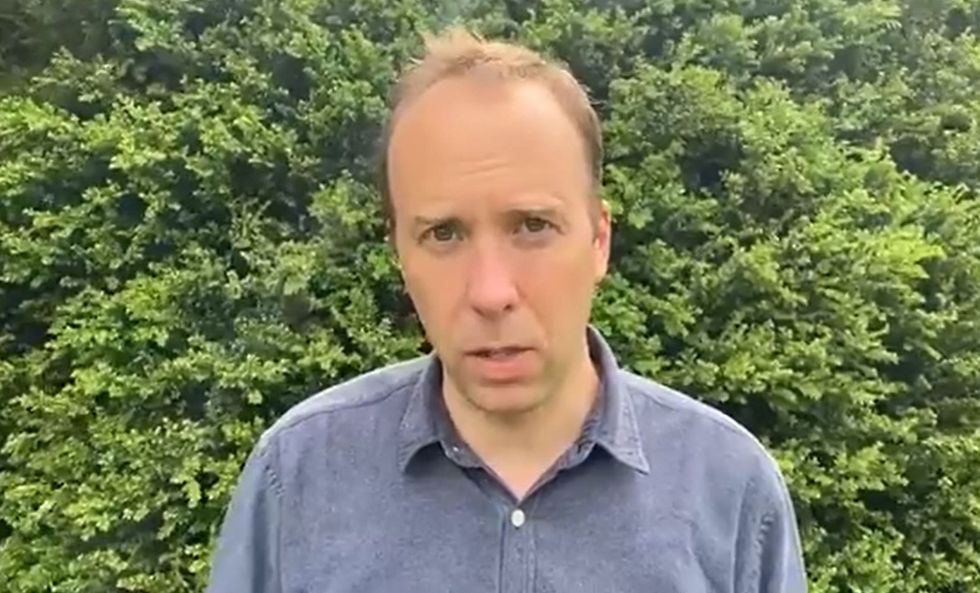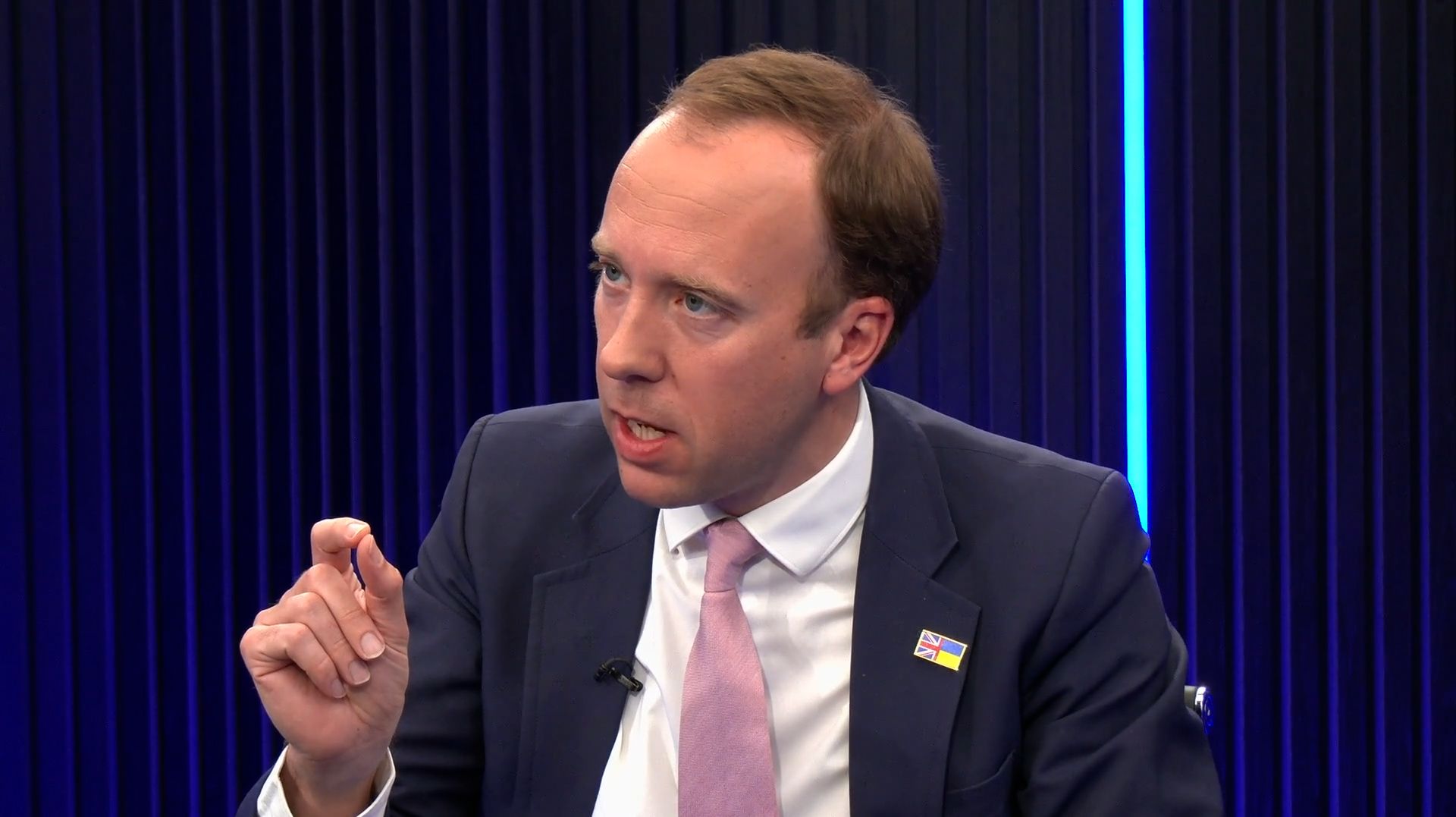Don't Miss
Most Read
Trending on GB News
Former health secretary Matt Hancock has apologised for people’s “pain and anguish” during the coronavirus pandemic, after the High Court ruled the Government’s care home discharge policies were unlawful.
On Wednesday, the High Court found that policies in March and early April 2020 were unlawful because they failed to take into account the risk to elderly and vulnerable residents from non-symptomatic transmission of the virus.
The claim against the Government was brought by two women after their fathers died from Covid-19 – Cathy Gardner, whose father Michael Gibson died, and Fay Harris, whose father Donald died.
Mr Hancock told the BBC the pandemic was “incredibly difficult” for many people, adding: “I’m very happy to reiterate my apology, as the Prime Minister has done, as I said on Wednesday, for all of the pain and the anguish that it caused.”
Matt Hancock during his resignation speech
Matt Hancock
When the pandemic hit in early 2020, patients were rapidly discharged into care homes without testing, despite the risk of asymptomatic transmission, with Government documents showing there was no requirement for this until mid-April.
The judges said it was necessary to discharge patients “to preserve the capacity of the NHS”, but found it was “irrational” for the Government not to have advised that asymptomatic patients should isolate from existing residents for 14 days after admission.
There was no evidence that Mr Hancock – or anyone advising him – addressed the issue of the risk of asymptomatic transmission to care home residents in England, or that he considered or was asked to consider the question of isolating asymptomatic admissions.
However, they judged that the “growing appreciation that asymptomatic transmission was a real possibility ought to have prompted a change in Government policy concerning care homes earlier than it did”.
Matt Hancock on GB News
GB News
They pointed out that these risks were highlighted as early as March 13 by figures including the Government’s chief scientific adviser for England, Sir Patrick Vallance, who said it was “quite likely”.
In a statement released on Wednesday, Mr Hancock’s spokesman said Public Health England had failed to tell ministers what they knew, and he wished it had been brought to his attention sooner.
Mr Hancock told the BBC the ruling was an important judgment that needs to be considered.
He continued: “What it found was that … we ministers were not told about the asymptomatic transmission.
“This is a really important scientific fact.
“And the most important thing is that we learn from what happened. We learn those lessons as a country, how to handle pandemics, because there will be a future one.”
More than 20,000 elderly or disabled care home residents died from Covid-19 in England and Wales during the first wave (up to the end of August 2020).
Care groups welcomed the ruling as a “first step to justice”, but said bereaved families will be asking why more was not done to protect their loved ones.
They also dismissed Mr Hancock’s claims that the Government tried to put a “protective” ring around care homes, branding this “non-existent”, a “sickening lie” and a “joke”.
Asked if he regretted using the phrase, Mr Hancock said the Government “did all that we could with the information that I had at the time”.
He said the Government had introduced stronger rules, including limiting staff movement between care homes, before the second wave hit and said the pandemic response was “all about learning”.












